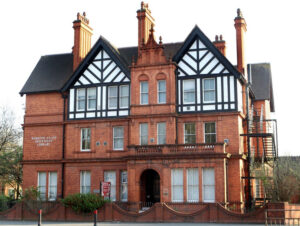Xinran Meng is a MA Cultural Practice student from the University of Manchester. Xinran Meng has been on placement with Manchester Histories. His placement has involved doing some historical research on the museums, and libraries that form the HiDDEN network to produce a series of blog posts to promote their work. In his last post he explores the history of the Working Class Movement Library.
What is the Working Class Movement Library:
The Working Class Movement Library (WCML) is a library and archive in Manchester, UK, dedicated to the collection, preservation and presentation of materials and literature related to the labour movement. Founded in the 1950s, the library has documented the organizations and movements of ordinary men and women for over 200 years. It aims to provide a place for the working class to research and learn about their own history. The museum has a large collection of books, journals, leaflets, posters, manuals, documents and pictures, etc., covering the historical materials of the labour movement from the 18th century, including socialism, trade unions, women’s movement, anti-war movement and other social movements.
The history of the Working Class Movement Library
The WCML Movement Library was originally established by Ruth and Edmund Frow as their personal collection. Today, it is a library and archive in Manchester, England, dedicated to collecting, preserving and displaying material and documents related to the labour movement. It can be said that the history of The Working Class Movement Library is inseparable from the careers of Ruth and Edmund (Eddie).
Eddie Frow was a British socialist and labour movement leader born on 6 June 1906 in the village of Harrington, Lincolnshire, the son of a sharecropper who owned 18 acres of land. In 1924, at the age of 17, he joined the Communist Party and remained a member until his death. Throughout his working career, he has been closely concerned with the proletarian movement and the lives of ordinary people, and he has personally organized and participated in many trade unions and workers’ activities within his reach. By his own estimation, Eddie lost 20 of his 21 jobs in his first 20 years on the job due to union activity.
Ruth was born in 1922. After she left school, she served in the Women’s Auxiliary Air Force through World War II. She joined the Communist Party at Sandwich, Kent, in 1945. After the war, she became a teacher and became involved in various union movements as a member of the National Federation of Teachers. She was Secretary of the Manchester Peace Council when the Manchester National Democratic Council was formed and was elected their first Vice-Chairman.
Eddie and Ruth first met in 1953 at a Communist Party Day labour history school. They both loved labour movement books and documents. A few years later, they got married.
Throughout their life, Ruth and Eddie were avid readers, spending much of their time amassing a vast collection of books and documents related to trade unions and the socialist movement. They built a library in the house where they lived. Finally, with the help of proletarian comrades from all over the country the Working Class Movement Library was established in Salford, the works there are very popular with students and historians all over the country.
History after the red brick – the history of the library itself
As mentioned earlier, in the 1950s Edmund and Ruth Frow began collecting and preserving material on the labour movement in their home. They soon set up a small library, which they opened to other workers and scholars. Dedicated to the collection and preservation of books, documents, photographs, audio and video material on the labour movement, trade unions, socialism and communism.
Over time, WCML has grown and grown, attracting more and more donations and volunteers. In 1987, WCML gained official charity status and became an independent non-profit organization.
Handwriting, Printing, Memorabilia, Archives and Collections of the Library
WCML’s collections revolve around the labour movement, trade unions and socialist ideas, particularly the history of the labour movement in Great Britain and Ireland. Initially, its collections came from the personal collections of Eddie and Ruth, but as the museum became public and donations came in, the library’s collections varied. The library continued to expand its collections, and by the early 2000s it had more than 40,000 volumes and a vast collection of archival documents, pictures, audio and video materials. Its holdings consist mainly of books, pamphlets and periodicals, as well as more detailed archives of various types, such as trade union records, personal papers and organizational records. It also contains details on some items related to the labour movement, such as banners, pictures, mugs and badges. There are also important special collections such as the personal collections of activists such as Len Johnson and Benny Rothman. In addition to its collection of materials, WCML regularly organizes various community events and educational programs such as exhibitions, lectures, seminars and workshops aimed at promoting public understanding and awareness of the labour movement and trade unions.
Overall
The history of WCML is inseparable from the industrial history of the City of Manchester. The city was once the centre of Britain’s Industrial Revolution, attracting large numbers of workers and immigrants. Manchester’s working class played an important role in a number of labour movements in the 19th and early 20th centuries, including the machine-wrecking movement against factory owners, Karl Marx and Friedrich Engels after the publication of the Communist Manifesto, as well as strikes and protests by coal miners and transport workers.
WCML provides valuable resources and platforms for people to understand and study this period of history, and it is also an important cultural and social historical heritage.








